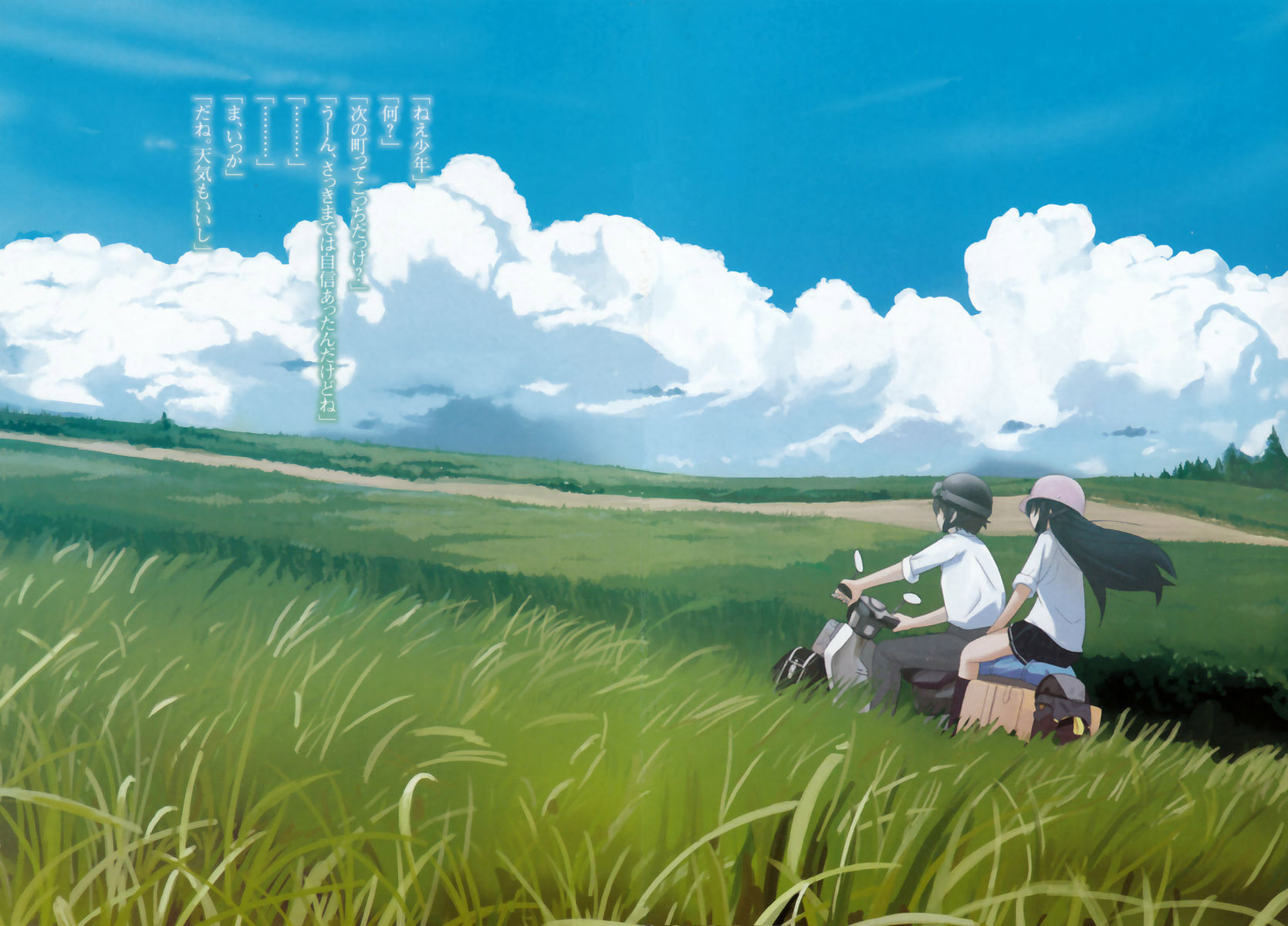Maybe some of people has known that twitter only allows for 140 characters in a tweet. It might be considered a crazy idea to limit a person in expressing what he/shi is thinking at the moment in only 140 characters. But then, twitter still survived to these days. It becomes widely used not just by common people, but also by presidents, actors/actresses, and even the Pope of Vatican. When I think about why twitter could be this successful, I think of how, surprisingly, limitation can spur interesting creativity.
One such limitation is refraining from using any proper names, whether it’s the name of person or name of places, in writing a story. This is an intriguing idea that I’ve encountered more than once. For example, there’s Maoyū Maō Yūsha where they only uses the names of typical fantasy RPG job classes such as “Demon King”, “Hero”, or “Female Knight” to refer to the characters, instead of using any proper name. The comedy manga Maousama Chotto Sore Totte!! (published in Indonesia as Raja Setan Ambilin Itu Dong), a comedy manga that similarly addreeses all the characters with their fantasy job classes. But prior to these works, I have first encountered a story that doesn’t use any proper names to address its characters when reading Tabi ni Deyou, Horobiyuku Sekai no Hate Made.
Literally means Our Journey to the End of the Ceasing World, it tells the story of a boy and a girl who traveled far north on an old super cub, without any proper destination, nor any goals. On the journey they encounter some people with different stories: a director and a secretary who work at a farm, a man who have an airplane, and a doctor with his patient.

At the first time, everything doesn’t seem unusual. High schoolers riding on a bike in some kind of tour is not that strange. But then, it becomes noticable that things aren’t as they appear to be. Why aren’t they addressing each other using their names? Why is it so quiet? And why is it explained that their names and photos vanished in every document?
In the middle of the story, it will be clear that humanity has encountered some kind of illness termed “Lost” which erases the very existence of those who suffer it. First their name are lost everywhere, then their photos, and it will gradually continue until their existence are nothing to be found, forgotten by everyone. That’s why even the boy will not able to remember his own name, let alone his companion’s name.
It felt difficult to decide what kind of story is presented here. The circumstances where everyone will “disappear” and not much humans are left in the world imply an apocalyptic setting, but it can’t be said to be a sad story. Both The Boy and The Girl are chatting, quarreling, even laughing like nothing happened, even though they don’t know each other’s names. But it’s also difficult to say that this is a story that ends happily. They just travel, meet some kind of strange person in the middle of their journey, and then share about their experience on the journey, while they get some new experience from the people they met. Except from the second story, I can’t say that they’re helping people that they meet.

As it goes on, the story expands further the phenomenon of “Lost” into the core of the narrative. The Boy and The Girl will learn how this disease could change people’s opinion about their daily life, what’s important or what’s not important, and what is the meaning of chasing your dream, and finishing what you’ve done. It is well described in the meaning of their journey that the aim is to travel “to the end of the world.” In sum, it can’t be said that it is aimless, for they still do it because it is what they want to pursue. There is a popular Islamic saying that goes “Work for your world as if you will live forever, and work for your afterlife as if you will die tomorrow.” Although it’s not perfectly the same thing, I think that this story is quite reminiscent of what the saying means.
Another lesson that that can be learned from this story is: you don’t need a reason to help others. It is conveyed through the portrayal of the relationship between The Boy and The Girl. They don’t even know each others’ names, yet they do their roles responsibly without asking any questions. Their relationship also remains ambiguous: they’re not friends, couples, let alone lovers. But the Boy helped the Girl with all his might while she’s sick, even though he himself doesn’t know the reason why. They just simply do it, without questioning it.
The writer commented that he started the idea of writing this novel with a simple question: What would you do if you could leave nothing behind after dying? The Boy, The Girl, and all of the characters in this story actually are searching for it, with their own way. It’s quite a deep question to us who spend our days in this world leisurely. What have we done for the others? Does our existence in this world have a good impression for others? Or would people remember only our name that once had existed?
In Islamic teachings, giving a name is an important aspect. People are hoped to resembles his/her name, and sometimes we do have some feeling of responsibility on our name. After reading this story, I wonder which is more important: the name itself or the people who carry the name?
Like Shakespeare said, “What’s in a name?”
The Indonesian Anime Times | Written by M Razif Dwi Kurniawan









god, this novel was damn depressing